Comer probes NGOs that received $20B in Biden EPA grants despite almost no revenue: ‘Shady deal’
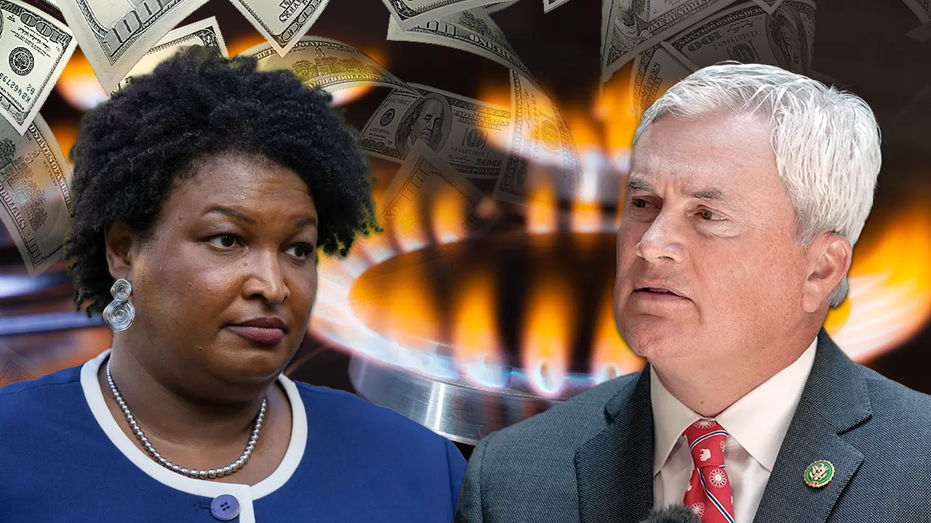
FIRST ON FOX: House Oversight Chairman James Comer is expanding his probe into former President Joe Biden’s EPA, accusing the agency of awarding $20 billion in grants to political allies. Comer, R-Ky., called on eight nongovernmental organizations who received the grants to offer the committee all information related to the grants and their staff and salaries. The $20 billion came out of two initiatives launched under the 2022 Inflation Reduction Act that aimed to offer grants to nonprofits, community development banks and other groups for projects focusing on disadvantaged communities. EPA Administrator Lee Zeldin moved to terminate the programs earlier this month, but that decision is now held up in court. “The Biden EPA tried to dodge any oversight by striking a shady deal with a financial institution to cover up its corrupt self-dealing that rewarded political cronies pushing a far-left environmental agenda,” Comer said in a statement. “The radical environmental groups profiting from Biden’s Green New Deal must be held accountable for their misuse of taxpayer-funded grants and provide information for our investigation.” TRUMP EPA CHIEF TO ‘CONFRONT CRISIS’ OF MEXICAN SEWAGE POLLUTING SAN DIEGO AREA BEACHES Republicans claim the $20 billion was “parked at an outside financial institution” to avoid oversight. As part of the Greenhouse Gas Reduction Fund (GGRF) program, eight groups were awarded funds from the $14 billion National Clean Investment Fund and the $6 billion Clean Communities Investment Accelerator. Eight letters went out to: Climate United, Coalition for Green Capital, Power Forward Communities, Opportunity Finance Network, Inclusiv, Justice Climate Fund, Appalachian Community Capital and Native CDFI Network. Included in the funds was a $2 billion grant to Power Forward Communities, a group linked to former Georgia gubernatorial candidate Stacey Abrams that aims to “reduce our impact on the climate” by funding the replacement of household appliances in lower-income communities with green alternatives. Zeldin told Fox News that in 2023, Power Forward Communities reported just $100 in revenue, but was later granted $2 billion by the Biden-era EPA in 2024. “On page one of the grant agreement, it tells them that they have 21 days to distribute all $2 billion. On page seven of the grant agreement, it gives them 90 days to complete a training called ‘How to Develop a Budget.’ I would say that any entity that needs training on how to develop a budget shouldn’t be actually distributing money before they take that training, and they certainly shouldn’t be receiving $2 billion to be distributed that rapidly,” he continued. Zeldin also noted the EPA found a potential “conflict of interest” payment of $5 billion to the former director of the Greenhouse Gas Reduction Fund under Biden. “All this money was put up front,” Zeldin said. “It was ‘here is $20 billion.’ And it was going to their friends on the left.” The acting inspector general of the EPA is now investigating the GGRF for financial mismanagement, conflicts of interest and oversight failures. The Oversight Committee launched its probe in February and requested a briefing from Zeldin on the matter earlier this month. The FBI is also investigating possible criminal violations. Fox News Digital has reached out to the eight companies for comment on Comer’s letters but did not receive responses prior to publication. Fox News’ Landon Mion contributed to this report.
Reporters say they found Waltz, Gabbard, Hegseth private contact info online
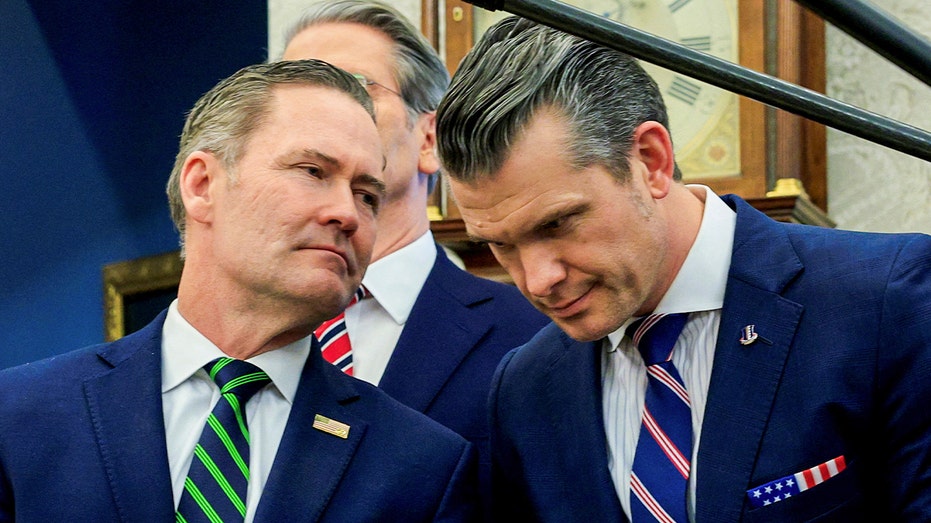
Reporters are claiming to have found private contact information online for top Trump administration officials at the center of a Signal text chain leak disclosing U.S. plans to attack Yemen’s Houthi rebels. Germany’s Der Spiegel said national security advisor Mike Waltz, Director of National Intelligence Tulsi Gabbard and Secretary of Defense Pete Hegseth are among those affected. The outlet reported that phone numbers, email addresses and even some passwords belonging to the officials were found on the internet by its staff after they “used commercial people search engines along with hacked customer data that has been published on the web.” “Most of these numbers and email addresses are apparently still in use, with some of them linked to profiles on social media platforms like Instagram and LinkedIn. They were used to create Dropbox accounts and profiles in apps that track running data,” Der Spiegel reported. “There are also WhatsApp profiles for the respective phone numbers and even Signal accounts in some cases.” TRUMP SAYS HE ‘ALWAYS THOUGHT’ WALTZ WAS RESPONSIBLE FOR SIGNAL CHAT SCANDAL The outlet, citing publicly available information, claimed an email address linked to Hegseth was in use just a few days ago. It said WhatsApp and Signal accounts purportedly belonging to Waltz appear to have been deactivated after it reached out to both accounts for comment. ATLANTIC REPORTER PUBLISHES MORE TEXTS ABOUT ATTACK ON HOUTHI TARGETS Der Spiegel reported that its staff also found private Google accounts linked to Gabbard in use as recently as two weeks ago. A spokesperson for the Office of the Director of National Intelligence told Fox News Digital Thursday that “this occurred almost 10 years ago, and the platforms mentioned haven’t been used in years and the passwords have changed multiple times.” Neither the White House nor the Department of Defense responded to Fox News Digital’s request for comment on Thursday.
Trump EPA chief to ‘confront crisis’ of Mexican sewage polluting San Diego area beaches
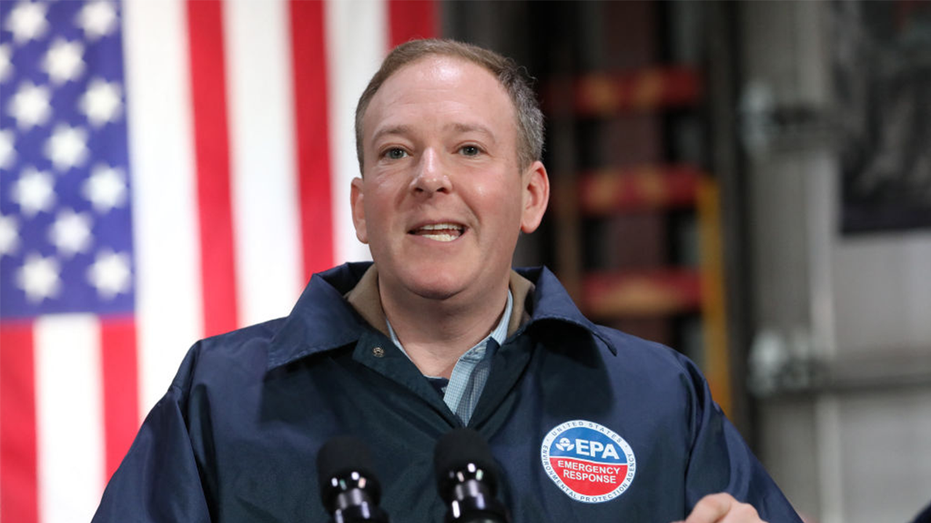
Trump EPA chief Lee Zeldin plans to visit the San Diego-Mexico border “in the near future” to assess the escalating toxic waste and sewage runoff from the Tijuana River, which has led to over 1,000 beach closures at Imperial Beach and caused health issues among Navy SEAL trainees. “Mexico must fully honor its commitment to control their country’s growing pollution and sewage impacting the United States,” Environmental Protection Agency Administrator Lee Zeldin told Fox News Digital in a statement. “The time when excuses, delays or exceptions are tolerated is over.” Zeldin said his agency will “ramp up” efforts with local agencies in Southern California and Mexico “to confront this crisis head on.” TRUMP STILL NEEDS CONGRESS’ HELP WITH PLAN TO ABOLISH EDUCATION DEPARTMENT “I look forward to visiting the border in the near future to view this issue firsthand, meet with elected officials and ensure permanent solutions are urgently implemented to stop years of Mexican sewage impacting the U.S.,” Zeldin said. The longstanding issue of untreated sewage flowing from Tijuana, Mexico, into San Diego’s beaches was exacerbated earlier this year, when, in January, the Hollister Wastewater Pump Station, which transfers sewage from Tijuana to the South Bay International Wastewater Treatment Plant, malfunctioned and spilled approximately 30,000 gallons of sewage into the river. NAVY DEPLOYS ADDITIONAL WARSHIP TO CURB ILLEGAL IMMIGRATION, DRUG SMUGGLING AT THE SOUTHERN BORDER Millions of federal dollars have been proposed – with support from the previous Biden administration – for repairs and expansion of the South Bay International Wastewater Treatment Plant. But Republicans, including President Donald Trump, are mostly opposed to it, citing it as another example of wasteful government spending. An EPA official told Fox News Digital “the issue remains that Mexico should be treating their own waste.” “Mexico needs to build and properly operate the infrastructure necessary to treat all the sewage generated by Tijuana,” the spokesperson said. “Current projects are not adequate and will still allow significant untreated sewage to be discharged into the ocean, impacting the U.S. Mexico should be paying for their own wastewater collection, not U.S. taxpayer dollars.” San Diego County Supervisor Jim Desmond called it “one of the biggest environmental and public health crises” in a post on X last week. “This isn’t just a nuisance — it’s a danger. Our Navy SEALs train just north of this toxic mess,” Desmond wrote. “Local families are exposed to contaminated water. Tourism suffers. And, yet, the State of California continues to look the other way. Many politicians have made promises — but delivered nothing. That ends now.” Last month, the Department of Defense’s Inspector General published a report show 76% of its tests showed bacteria surpassing normal safety levels and over 1,100 cases of health issues, primarily gastrointestinal illnesses among SEALs, were reported after they trained in the toxic water. A spokesperson for Gov. Gavin Newsom’s office told Fox News Digital “this is not a new issue for the state” or the administration and that California has been “focused on resolving this for years, including with help from the previous federal administration and Congress.” “We welcome collaboration with the Trump Administration to continue efforts to clean up the Tijuana River,” the spokesperson said.
Trump says he ‘always thought’ Waltz was responsible for Signal chat scandal
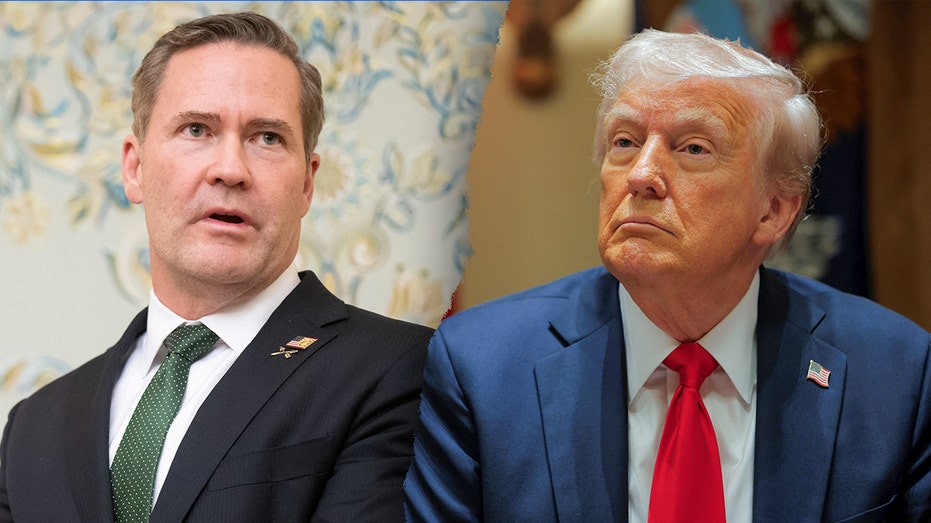
President Donald Trump appeared to place the blame for the Signal chat scandal on national security adviser Mike Waltz. The president was asked who was responsible for the scandal while signing an executive order on Wednesday evening. “It was Mike, I guess. I don’t know, I always thought it was Mike,” Trump told reporters before calling the media’s reaction to the scandal a “witch hunt.” This marks a significant change of tune for the president, who blamed someone else for the scandal when speaking to NBC. During the Tuesday phone interview, Trump told NBC that he believed that “it was one of Michael’s people on the phone. A staffer had his number in there.” RUBIO BREAKS SILENCE ON LEAKED SIGNAL CHAT: ‘SOMEONE MADE A BIG MISTAKE’ A reporter then asked if Defense Secretary Pete Hegseth should be worried about his position amid the scandal, and Trump rushed to his Cabinet member’s defense. “Hegseth, he was doing a great job… How do you bring Hegseth into it? He had nothing to do with this,” Trump said in response. He also told reporters that he believes Signal, an encrypted messaging app, “could be defective” in light of the scandal. While speaking to reporters, Trump dismissed the significance of the scandal and instead touted the “unbelievably successful” attack, saying that the media should be focusing on the outcome rather than the chat group. ATLANTIC REPORTER PUBLISHES MORE TEXTS ABOUT ATTACK ON HOUTHI TARGETS The Atlantic’s Editor-in-Chief Jeffrey Goldberg sent the Trump White House reeling after he broke the bombshell story on Monday. Goldberg was inadvertently included in a Signal chat group with senior Trump administration officials who were discussing a planned attack on the Houthis in Yemen. Goldberg said he “had very strong doubts” about the chat’s authenticity. However, once he verified that the actions discussed in the group were occurring, he knew it was real. The Atlantic editor-in-chief said he had “never seen a breach quite like this.” While Goldberg acknowledged that it’s not uncommon for U.S. officials to use Signal, he said it was primarily used as a logistics tool and not a place to discuss “imminent war plans.” The Trump administration has worked to downplay the report for days, and even claimed victory when The Atlantic published a follow-up describing what was discussed as “attack plans,” rather than “war plans.” “This entire story was another hoax written by a Trump-hater who is well-known for his sensationalist spin,” White House Press Secretary Karoline Leavitt wrote in a post on X. Leavitt confirmed to reporters on Wednesday that Elon Musk was helping lead an investigation of the Signal chat leak. However, it is unclear what will happen to those found responsible, as Trump has already said that he would not fire Waltz over the scandal.
Javed Akhtar Backs Mohanlal and Mammootty Amid Sabarimala Puja Controversy, THIS is what he said
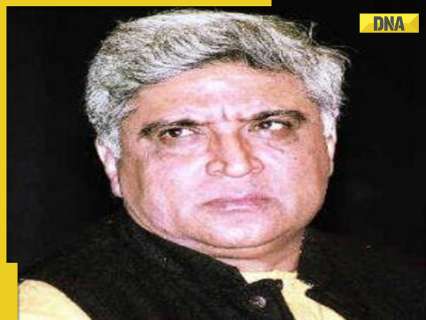
Taking to social media platform X, Javed Akhtar heaped praise on the friendship between Mohanlal and Mammootty.
Trump says ‘we need Greenland for international safety and security’ ahead of Vance trip
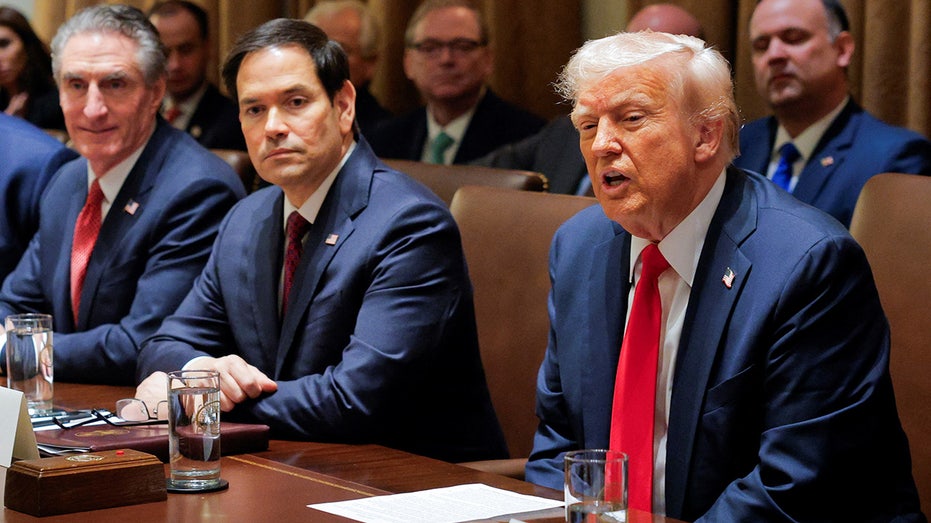
President Donald Trump reiterated his argument for the U.S. taking over Greenland on Wednesday, just before Vice President JD Vance is set to visit the island. Trump said his administration must “let them know that we need Greenland for international safety and security. We need it. We have to have it.” Vance and his wife, second lady Usha Vance, will visit a U.S. space facility based on the island. “It’s [an] island from a defensive posture and even offensive posture is something we need. … When you look at the ships going up their shore by the hundreds, it’s a busy place,” he added, speaking in an interview with radio host Vince Coglianese. Trump went on to say that he is unsure whether the people of Greenland want to become U.S. citizens, but he argued it is important to “convince them.” GREENLAND PM SLAMS UPCOMING VISIT FROM USHA VANCE AS ‘VERY AGGRESSIVE’ PROVOCATION: REPORT “We have to have the land because it’s not possible to properly defend a large section of this Earth — not just the U.S. — without it. So we have to have it, and I think we will have it,” he said. JD VANCE RECALLS HIS WIFE TEXTING HIM UNDER TABLE AT SILICON VALLEY DINNER: ‘THESE PEOPLE ARE F—ING CRAZY’ The vice president says he will visit Space Force guardians at the Pituffik Space Base on Friday and “check out what’s goin’ on with the security there of Greenland.” A press release from Vance’s office stated that the base is the Defense Department’s “northernmost installation.” “The Vice President and Second Lady’s visit to Pituffik Space Base will take place in lieu of the Second Lady’s previously announced visit to the Avannaata Qimussersu dogsled race in Sisimiut,” the press release stated. TRUMP REMAINS OPTIMISTIC ABOUT ODDS OF ACQUIRING GREENLAND: ‘I THINK IT’LL HAPPEN’ “The strategic partnership between the United States and Greenland has long played a vital role in our national and economic security. During World War Two, the United States established over a dozen military bases in Greenland to defend the North Atlantic from Nazi incursion. During the Cold War, the United States committed additional resources to Greenland to defend against Soviet missile attacks,” the release declared. “In the decades since, neglect and inaction from Danish leaders and past U.S. administrations have presented our adversaries with the opportunity to advance their own priorities in Greenland and the Arctic. President Trump is rightly changing course.” CLICK HERE TO GET THE FOX NEWS APP Fox News’ Sarah Tobianski and Alex Nitzberg contributed to this report
Swing state senators come together in rare show of bipartisanship, Dems aren’t happy about it
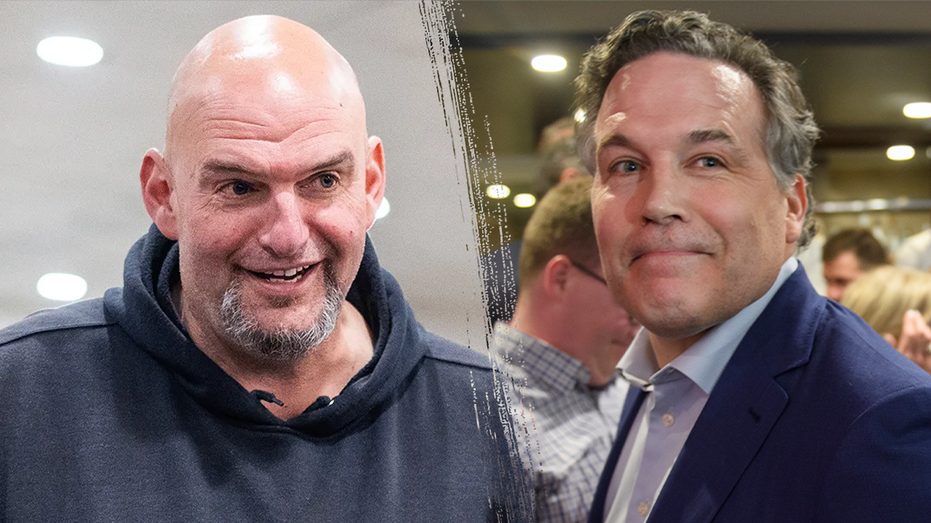
Pennsylvania Sens. Dave McCormick and John Fetterman will host their first joint public event in Pittsburgh this Saturday, but not everyone is pleased with the Democratic senator’s bipartisan show of support for his Republican colleagues’ new book. An activist group, Mondays Without McCormick Pittsburgh, is planning a protest with Indivisible Pittsburgh this Saturday, urging both Pennsylvania senators to listen to their concerned constituents and host a town hall. Meanwhile, Fetterman’s 2022 Democratic primary contender, former Rep. Conor Lamb, piled on the accusations against the Democratic senator in an interview with The Philadelphia Inquirer, questioning where Fetterman has been during President Donald Trump‘s second term. “And that’s John Fetterman’s job. He should be not only speaking out, he should be listening to people, and instead, it sounds like he’s going to be listening to Dave McCormick and cheering on Dave McCormick’s book signing,” Lamb said. WISCONSINITES KICKED OUT AND DENIED ENTRY TO THIS DEMOCRAT’S ‘FAKE TOWN HALL’ While McCormick actively shares his weekly meetings with constituents on social media, it has been more than two months since Fetterman has hosted a public event in Pennsylvania, and expected protests come amid ongoing town hall drama erupting across the United States. GOP LAWMAKER RIPS ‘LOST IN THE WILDERNESS’ DOGE PROTESTERS AMID CHAOS AT HER TOWN HALL: ‘HIGHLY ORCHESTRATED’ Fetterman, who was the only Democratic senator willing to meet with Trump at Mar-a-Lago ahead of his inauguration, has been steadfast in his support for Israel and co-sponsored the Laken Riley Act, which allows ICE to detain undocumented immigrants who commit crimes in the United States. While McCormick has welcomed his counterpart’s bipartisanship, Democrats have not been so happy with Fetterman bucking his party. “He’s been saying the same thing about Democrats now for six months, we get it,” Lamb told the Inquirer. “Democrats know we have some issues, but he has a job to do… I know that trashing the Democratic Party gets him a lot of attention, but he wasn’t put in office to be a political commentator. He was sent to office to get results.” The Pittsburgh book tour event will include a conversation between the Pennsylvania senators and their wives – Gisele Barreto Fetterman and Dina Powell McCormick, who served as a national security advisor during Trump’s first term. “Instead of holding town halls, they are hawking a book at a paid event at City Winery. Join us to tell them NO! NO to dismantling the Department of Education. NO to defunding SNAP and programs that feed our kids. NO to cuts to NIH which supports research for our kids and ALL of us. And NO to attacks on our democracy – the legacy we will leave our kids,” the Facebook event invite reads. The McCormicks co-wrote their new book about mentorship, “WHO BELIEVED IN YOU?,” and the book tour is billed as a discussion of transformative mentorship “from some of the most successful leaders in the country.” According to an Eventbrite, the book tour event is $32, which includes the cost of a book at $29.99. The Pittsburgh protesters have ridiculed the “paid book event,” which was originally planned at City Winery. The event location has since been changed to: “Location to be announced.” However, the protesters have not been deterred, vowing to gather in the Strip District. “Our senators appear to have caught wind of the fact that their constituents want to be heard. And instead of HOLDING TOWN HALLS, they have moved their paid book event (the subject of this protest) to an UNDISCLOSED LOCATION. Please keep reading and stay tuned for a NEW LOCATION,” the Facebook page reads. Both Democrats and Republicans have been unable to avoid the ire of constituents at town halls, including many who are displeased with Trump’s executive actions, worried about cuts to programs like Medicare and Social Security and angry at Elon Musk’s slashing of government programs and spending at the Department of Government Efficiency (DOGE). Democrats launched a coordinated effort to host “People’s Town Halls” in all 50 states after a wave of coordinated, disruptive protests led Republican leadership to advise against hosting in-person town halls. The Democratic National Committee (DNC) and Democratic state parties held a total of 22 events in 13 states during the first week, the DNC told Fox News Digital Friday. The poster for the Pittsburgh protest includes a “missing” poster – like the ones used by the Democratic Party of Florida to troll Republican congressional leaders for not hosting in-person town halls. While tension at the town halls has been along partisan lines, Pennsylvania voters have united in their dissatisfaction with the senators from across the political aisle. FLORIDA DEMS STAGE TOWN HALLS IN GOP DISTRICTS FEATURING ‘MISSING’ POSTERS OF THEIR COLLEAGUES McCormick and Fetterman traded jabs during the Republican’s senatorial campaign last year, but the Pennsylvanians have put aside their differences since McCormick replaced former Sen. Bob Casey in the U.S. Senate last year. They sat for a joint interview and came together to support the Philadelphia Eagles at SuperBowl LIX, after McCormick and Fetterman agreed to “break bread” in January and met for dinner with their wives. During an appearance on Donald Trump Jr.’s podcast “TRIGGERED,” McCormick outlined his relationship with Fetterman, calling him a “voice of reason” among the Democratic Party on issues like border security, stopping the flow of fentanyl and supporting Israel. “I trust him. I think he’s a very authentic guy.” McCormick said. “I think he’s going to be a good partner.” McCormick and Fetterman did not respond to Fox News Digital’s request for comment.
Trump endorses Sen. Lindsey Graham for re-election: ‘HE WILL NOT LET YOU DOWN’
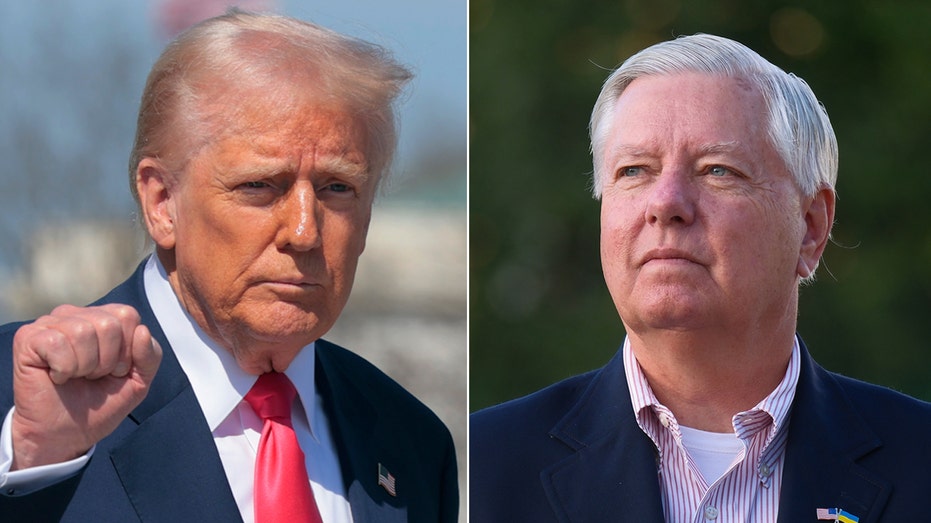
President Donald Trump endorsed Sen. Lindsey Graham, R-S.C., describing the lawmaker as “a wonderful friend.” Graham, who has served in the Senate for more than two decades, will be up for re-election again in 2026. “Senator Lindsey Graham is working incredibly hard for the Great People of South Carolina, a State I love and WON BIG in 2016, 2020, and 2024!” Trump declared in a Truth Social post on Wednesday night. JOHN FETTERMAN AND LINDSEY GRAHAM ADVOCATE FOR THE DESTRUCTION OF IRAN’S NUCLEAR PROGRAM “Lindsey has been a wonderful friend to me, and has always been there when I needed him. As the Chair of the Senate Budget Committee, Lindsey is fighting tirelessly to Grow the Economy, Lower Taxes, and Eliminate Government Waste. Lindsey is also relentlessly focused on helping us Secure the Border, Stop Migrant Crime, Strongly Support our Great Military/Vets, Promote American Energy DOMINANCE, Defend our always under siege Second Amendment, and ensure PEACE THROUGH STRENGTH,” he continued. “Senator Lindsey Graham has my Complete and Total Endorsement for Re-Election — HE WILL NOT LET YOU DOWN. Everyone in South Carolina should help Lindsey have a BIG WIN next year!” Some of the president’s supporters will likely disagree with the endorsement decision — people at a Trump rally in Graham’s own state booed the senator when he spoke at the event in 2023. OBAMA VS TRUMP: POLITICAL GIANTS BACK OPPOSING CANDIDATES IN WIDELY-WATCHED WISCONSIN SUPREME COURT CONTEST People booed when Trump mentioned Graham at another rally later in 2023. Graham thanked the president for his support on Wednesday night. “President Trump’s endorsement means the world to me. I am humbled by his faith in me as a Senator and as a friend. On a professional level, I am proud to have been there at the beginning when President Trump — through sheer force of will —achieved the greatest political comeback in American history,” the senator wrote in a post on X. BYRON DONALDS POINTS TO TRUMP ENDORSEMENT WHILE ADDRESSING CASEY DESANTIS RIVALING CAMPAIGN RUMORS CLICK HERE TO GET THE FOX NEWS APP “On a personal level, I genuinely enjoy our friendship. He’s an awesome golfing buddy, who I have yet to beat. I look forward to being one of the driving forces in the U.S. Senate to enact President Trump’s agenda to make America more prosperous and more secure. Thank you, Mr. President.” The president also issued posts backing several other Republican lawmakers on Wednesday night, including Sens. Bill Hagerty of Tennessee, Cindy Hyde-Smith of Mississippi, Cynthia Lummis of Wyoming, and Rep. John McGuire of Virginia.
Kerala Lottery Result March 27: Karunya Plus KN-566 Thursday lucky draw result DECLARED; 1st prize winner is…

Check the Karunya Plus KN-566 Thursday Winners lucky draw here to see if you’re the first-place winner of Rs 80 Lakhs, while the second and third-place winners will receive Rs 10 lakh and Rs 1 lakh respectively.
PM Modi writes to Muhammad Yunus, highlights shared history amid strained India-Bangladesh ties

Greeting Bangladesh Chief Adviser Muhammad Yunus and the people of the neighbouring country on its National Day, Modi tacitly reminded him of the contribution of Indian Army in its independence from Pakistan, in which Dhaka has found a new friend.
